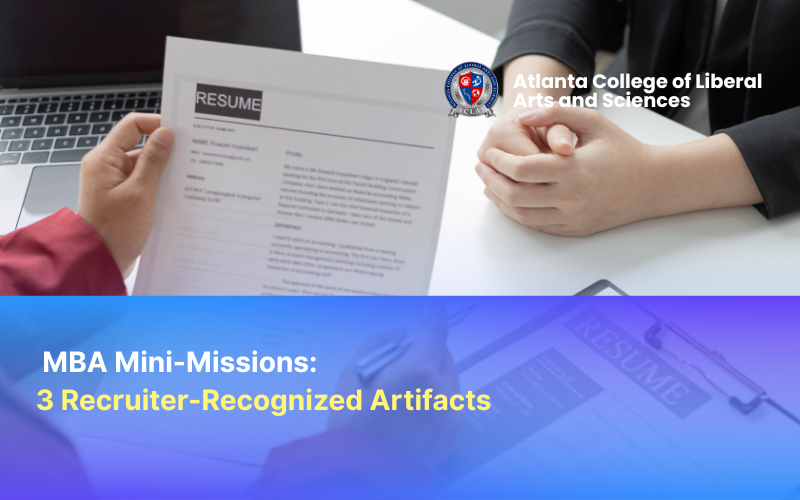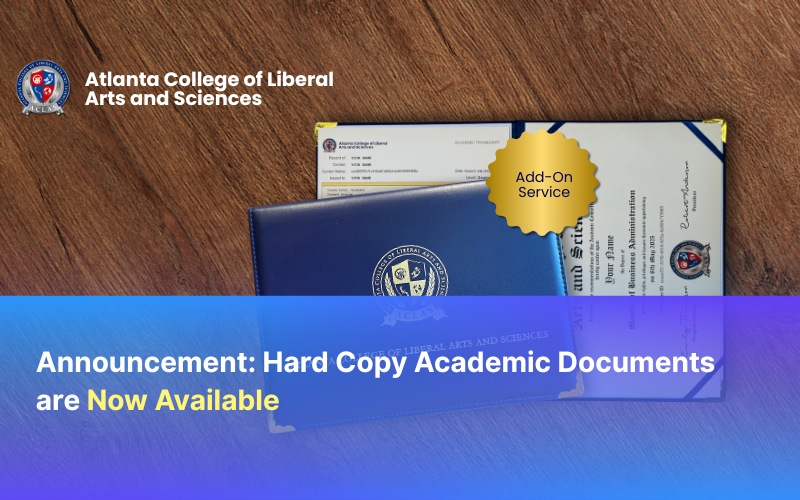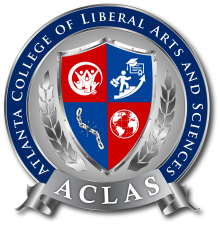Inspirational Journeys
Follow the Stories of Academics and Their Research Expeditions
The Skills Gap Crisis: Why Traditional Education Can't Keep Up

The Skills Gap Crisis: Why Traditional Education Can't Keep Up
Companies worldwide are desperate for skilled workers. But traditional universities teach outdated skills. Here's how to get the skills employers actually want.
Here's what's happening right now: Around the world, companies have job openings they can't fill. Not because there aren't enough people looking for work. But because workers don't have the right skills.
At the same time, millions of students graduate from universities every year. But they learn old information that doesn't help them in modern jobs.
This problem has a name: the skills gap crisis.
And it's getting worse every year.
What Is the Skills Gap Crisis?
The skills gap happens when:
Employers need specific skills for their jobs
But workers don't have these skills
So jobs stay empty, even when many people need work
The numbers are shocking:
75% of business leaders say they can't find skilled workers
87% of companies report skill gaps in their teams
74% of employers struggle to find qualified people
This isn't just a small problem. It's happening in every industry, in every country.
Why Traditional Universities Are Part of the Problem
Most universities work like this:
They decide what to teach
They spend 3-5 years creating new courses
Students learn this information
By the time students graduate, the information is already old
How Fast Industries Change:
New technology appears: 6-18 months
Companies adopt new methods: 12-24 months
Job requirements change: Every few months
Speed difference: Universities are 3-5 years behind
This means students learn skills that were useful 5 years ago, not the skills they need today.
The 4 Skills Every Employer Wants (But Can't Find)
Based on research with hundreds of companies, here are the skills that create the biggest problems for employers:
1. Leading Teams in the Digital Age
What employers need: Leaders who can manage people working from different locations, using different technologies, across different departments.
Why universities fail: Leadership courses still teach old-style management. But modern teams work remotely, use digital tools, and need different leadership approaches.
How ACLAS is different: MBA and DBA students learn to lead digital teams, manage remote workers, and coordinate projects across multiple departments using modern technology.
2. Working with Artificial Intelligence (AI)
What employers need: People who understand when to use AI, how to implement it, and how to work alongside AI systems.
Why universities fail: Computer science programs teach how to build AI. Business programs ignore AI completely. Nobody teaches how to use AI strategically in business.
How ACLAS is different: MCS students learn practical AI applications. They don't just study AI theory - they solve real business problems using AI tools.
3. Solving New Problems Quickly
What employers need: People who can handle unexpected situations, change plans quickly, and solve problems that have never happened before.
Why universities fail: Traditional education rewards finding "correct answers" to known problems. But real business requires solving new problems with no clear answers.
How ACLAS is different: Students work on real business challenges that change during the project. They learn to adapt and find solutions even when conditions change.
4. Using Technology Responsibly
What employers need: Leaders who understand the ethical implications of technology, ensure AI is used fairly, and balance efficiency with human impact.
Why universities fail: Ethics courses are separate from technology and business courses. Students don't learn how to integrate ethical thinking with practical decisions.
How ACLAS is different: Every course includes ethical considerations. Students learn to evaluate both business impact and social impact of their decisions.
How ACLAS Bridges the Skills Gap
We Update Our Courses Every 3 Months
Unlike traditional universities that take 3-5 years to change their curriculum, ACLAS reviews and updates course content every quarter (every 3 months).
Our process:
Monthly analysis: We study job postings to see what skills companies need
Quarterly surveys: We ask hiring managers what skills they're looking for
Alumni feedback: Recent graduates tell us which skills they use most at work
Fast updates: New content added to courses within 30-60 days
We Focus on Practical Application, Not Just Theory
Why ACLAS Graduates Get Better Jobs
Speed to Results
Traditional graduate: Studies for 2-4 years, then starts applying knowledge
ACLAS graduate: Applies knowledge immediately, sees career benefits within months
Practical Experience
Traditional graduate: Strong theory, limited real-world experience
ACLAS graduate: Proven track record of solving actual business problems
Current Skills
Traditional graduate: Knowledge based on old research and historical examples
ACLAS graduate: Skills aligned with current industry needs and future trends
Problem-Solving Ability
Traditional graduate: Knows what should work in theory
ACLAS graduate: Has actually solved problems and can do it again
Check Your Skills Gap: Simple Assessment
Answer these questions honestly to see where you stand:
Technical Skills:
□ Can you read data reports and make business decisions from them?
□ Do you understand how AI could improve your industry?
□ Can you lead digital projects across multiple departments?
□ Are you comfortable managing remote and international teams?
□ Do you know how to measure if technology investments are profitable?
Strategic Thinking:
□ Can you spot business opportunities that others miss?
□ Do you think about how changes in one area affect other areas?
□ Can you make good decisions when you don't have complete information?
□ Are you good at changing strategies when conditions change?
□ Do you consider ethical implications in all business decisions?
Leadership Skills:
□ Can you influence people without being their boss?
□ Do you work well with diverse teams across time zones?
□ Can you explain complex technical ideas to non-technical people?
□ Are you effective at managing resistance to change?
□ Do you help others develop skills for future success?
Your Score:
12-15 yes: You're ahead of most people, but keep learning to stay competitive
8-11 yes: Good foundation, but some important gaps to fill
4-7 yes: Risk of being left behind as industries evolve
0-3 yes: Urgent skill development needed
The Smart Investment: ACLAS Programs Pay for Themselves
Traditional Education Costs:
Time: 2-4 years full-time or 4-6 years part-time
Cost: $80,000-$200,000+ in tuition and lost income
Career impact: 6-12 months after graduation before seeing benefits
Risk: High (curriculum might be outdated by graduation)
ACLAS Investment Reality:
Time: 8-18 months of flexible, self-paced study
Cost: $89-$299 total program cost
Career impact: Immediate benefits while studying
Risk: Low (curriculum updated every 3 months)
Real Graduate Results:
Average salary increase: 35-78% within 12 months
Promotion rate: 67% get promoted within 18 months
Career change success: 89% successfully switch to new industries
Business ownership: 23% start their own companies
Your Action Plan: 3 Steps to Bridge Your Skills Gap
Step 1: This Week
Complete the skills assessment above
Research job listings in your target field to see required skills
Contact ACLAS to discuss your career goals
Talk to ACLAS alumni in your industry
Step 2: Next 30 Days
Choose your program based on career goals and industry needs
Start with one course to experience ACLAS methods
Identify a workplace problem you can solve with new learning
Connect with industry mentors through ACLAS partnerships
Step 3: Next 12 Months
Complete your degree program while working your current job
Implement multiple projects showing your enhanced skills
Build a portfolio of measurable business improvements
Position yourself for promotion or new career opportunities
Common Questions About ACLAS Programs
"Can I really learn while working full-time?"
Yes. ACLAS programs are designed for working professionals. Study at your own pace, on your schedule. Most students spend 5-10 hours per week and see immediate workplace applications.
"Will employers respect an online degree?"
ACLAS degrees don't mention "online" on certificates. Our graduates work at Fortune 500 companies worldwide. Employers care more about what you can do than where you learned it.
"What if I don't have a technical background?"
No problem. Our MCS program is designed for career changers. We start with basics and build advanced skills gradually. Many successful graduates started with no technical experience.
"How do I know the skills will be current?"
We update curriculum every 3 months based on current industry needs. You'll learn skills that companies need right now, not what they needed 5 years ago.
"Can I afford this investment?"
ACLAS programs cost $89-$299 total. Compare this to traditional programs costing $80,000-$200,000+. Most graduates recover their investment in salary increases within weeks of completion.
The Future Belongs to People Who Act Now
The skills gap crisis creates huge opportunities for people who prepare properly. While others struggle with outdated skills, you can become the problem-solver every company desperately needs.
Companies are looking for people who can:
Make smart decisions using data
Lead teams in digital environments
Work effectively with AI and automation
Solve new problems quickly
Use technology responsibly and ethically
ACLAS graduates don't just learn these skills - they prove they can apply them to real business challenges.
The question isn't whether you're smart enough or experienced enough.
The question is: Will you become the professional every employer is searching for?
Start Your Transformation Today
The workforce is changing rapidly. The best time to develop new skills was yesterday. The second best time is right now.
Choose your path:
MBA Program ($89) - Master data-driven business strategy and modern leadership
8 courses, 120 credits
Focus on practical business problem-solving
Perfect for managers and business professionals
DBA Program ($199) - Develop advanced business systems and change management
14 courses, 210 credits
Focus on strategic business architecture
Ideal for senior professionals and consultants
MCS Program ($299) - Build AI, machine learning, and digital transformation skills
7 courses, 120 credits
Focus on practical technology applications
Great for career changers entering tech
Ready to bridge your skills gap and accelerate your career?
Start Your Application Today →
0 Comments
Categories
- Career Growth 17
- Online Learning 11
- Updates and Opportunities 10
- Research 9
- Tips for Online Students 3
- AI in Education 2
Recent Posts
MBA Mini-Missions: 3 Recruiter-Recognized Artifacts
Sun, 21 Sep 2025

Announcement: Hard Copy Academic Documents are Now Available
Fri, 05 Sep 2025





Leave a Comment